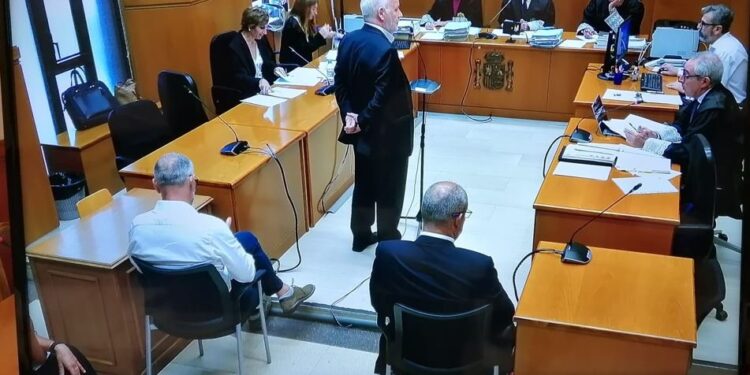**Exploring the Depths of the Catalan Political Landscape: Ex-Number 2 Interior Claims Buch Appoints a “School of Knowledge” for Mossos, Excluding Puigdemont**
In a recent development that has sent shockwaves through the Catalan political landscape, an ex-high-ranking official within the Interior Ministry has come forward with astonishing claims about the appointment of a “School of Knowledge” for Mossos d’Esquadra. These allegations have sparked intense debate and speculation among experts, citizens, and politicians alike.
According to the ex-number 2 official, who wishes to remain anonymous due to the sensitivity of the matter, Interior Minister Miquel Buch has allegedly handpicked a select group of trusted individuals to lead the creation of this unique educational institution. This exclusive school is purportedly designed to enhance the expertise and proficiency of Mossos d’Esquadra, Catalonia’s autonomous police force.
However, what has truly captivated the attention of both political enthusiasts and the general public is the exclusion of former Catalan President, Carles Puigdemont, from this project. The anonymous official claims that Buch’s decision to sideline Puigdemont is driven by a complex interplay of political power dynamics and personal animosities.
As the news of these stunning allegations spreads like wildfire, various theories have begun to emerge about the motives behind Buch’s controversial move. Some argue that the Interior Minister aims to solidify his own influence within the regional police force by asserting his authority over the selection process. Others assert that this decision is politically motivated, strategically sidelining Puigdemont as part of a broader agenda to weaken his political standing.
The repercussions of this alleged exclusion have left citizens and political analysts questioning the potential impact on both the police force and Catalonia’s political landscape. Detractors argue that overlooking Puigdemont, a figurehead among Catalonia’s pro-independence movement, may lead to a lack of ideological diversity within the ranks of the Mossos d’Esquadra. Consequently, this could stir further social and political tensions within an already polarized society.
Nonetheless, loyalists of the Interior Minister applaud Buch’s purported decision, deeming it an essential step toward depoliticizing the police force. By avoiding the appointment of Puigdemont, they argue, Buch may be attempting to ensure the neutrality and professionalism of the Mossos d’Esquadra, particularly in light of their role in addressing public safety issues and maintaining law and order.
As the controversy surrounding this alleged appointment unfolds, it is clear that the Catalan political landscape is once again immersed in turmoil. With diverging opinions and potential implications on the horizon, only time will reveal the true intentions and repercussions of Buch’s reported move.
The revelations surrounding the appointment of this remarkable “School of Knowledge” for Mossos d’Esquadra without the involvement of Carles Puigdemont serve as a chilling reminder of the complex and intriguing nature of Catalonia’s political dynamics. As the region treads through uncertain times, it becomes paramount for citizens and decision-makers to reflect deeply upon the potential consequences and possibilities that this revelation might bear.
” Sources www.elnacional.cat ”

